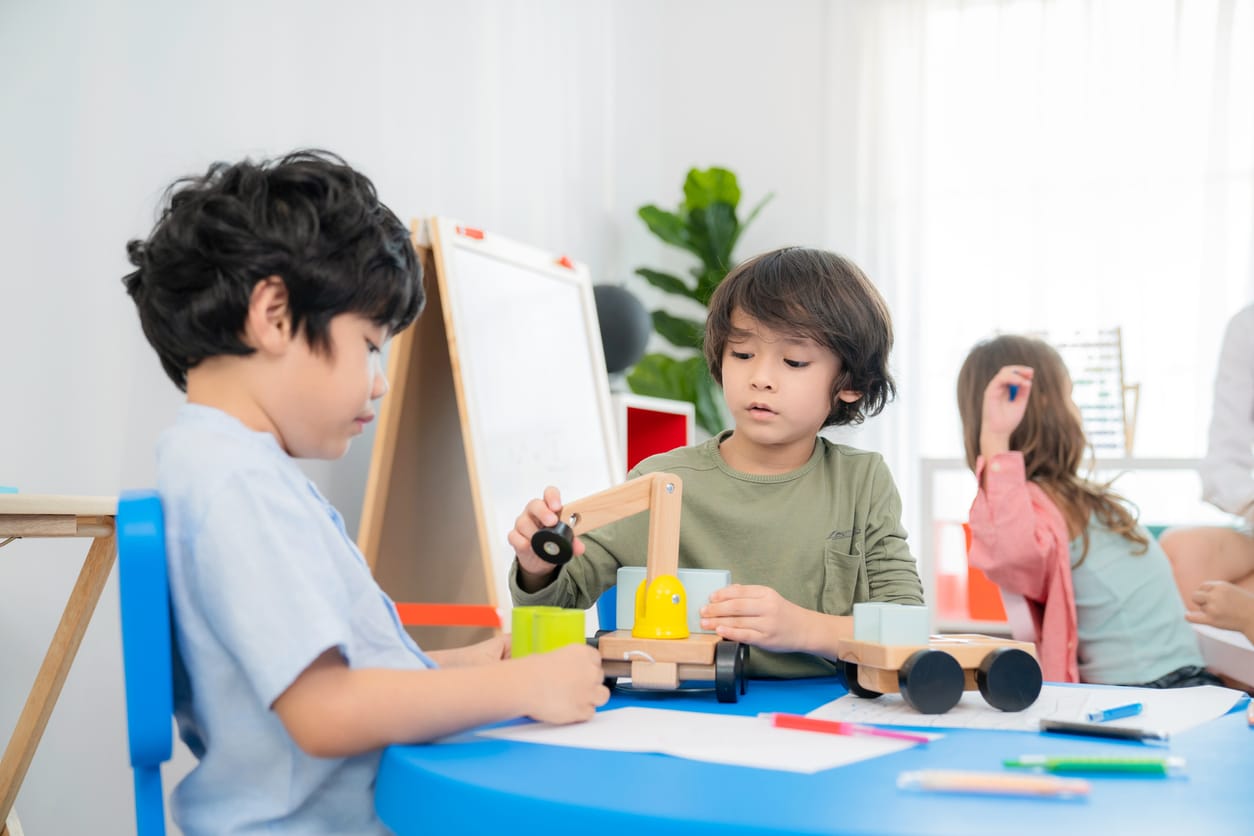How to Help a Child With Social Skills

Author: Circle of Care
Social skills play a vital role in a child’s overall development, impacting their ability to communicate effectively, form meaningful relationships, and navigate the complexities of the social world. As a parent or caregiver, fostering strong social skills in your child is a crucial task that sets them up for success both academically and in life.
How to Develop Social Skills in a Child
In nurturing your child’s social skills, you are providing them with important abilities that extend far beyond childhood. These skills empower them to navigate relationships, excel in teamwork, and thrive in their future personal and professional lives. Through leading by example, encouraging empathy, utilizing speech therapy, and more, you’re giving your child the tools to succeed socially.
Modeling
Children learn by observing and imitating the behavior of those around them, particularly their parents and caregivers. As a role model, you have the opportunity to demonstrate positive social interactions. Use respectful language, active listening, and good manners when interacting with others. By consistently modeling these behaviors, you provide your child with a strong foundation for developing their own social skills.
Encourage Empathy
Empathy is a cornerstone of healthy social interactions. Teach your child to understand and share the feelings of others. Engage them in conversations about how others might be feeling in different situations. Reading books or watching movies that highlight diverse perspectives and emotions can also help develop empathy. Encourage your child to express their own emotions and thoughts as well, fostering a safe space for emotional expression.
Teach Communication Skills
Effective communication is essential for building relationships and resolving conflicts. Teach your child active listening by maintaining eye contact, nodding, and responding appropriately during conversations. Encourage them to use clear and concise language to express their thoughts and feelings. Role-playing scenarios where they practice different communication techniques can be a fun and educational way to enhance their skills.
Engage in Group Activities
Participating in group activities such as team sports, clubs, or group projects exposes your child to various social dynamics. In these settings, they learn to cooperate, share responsibilities, and work towards common goals. Group activities encourage teamwork and collaboration while helping your child build confidence in interacting with different individuals.
Be Patient and Supportive
Embrace your child’s unique journey, celebrating each step forward, no matter how small. Encourage them with positivity, create a safe space for open communication, and emphasize the value of learning from mistakes. By modeling patience and embracing diversity, you provide a solid foundation for their social growth. Your role as a patient and supportive guide empowers them to navigate social interactions with resilience, shaping their path toward confidence.
Studies suggest that children with strong social skills are 46% more likely to have successful careers in adulthood. Source: Harvard University
Benefits of Speech Therapy for Kids’ Social Skills
Harnessing the power of pediatric speech therapy can be a game-changer in nurturing children’s social skills. While commonly associated with language improvement, speech therapy offers a range of benefits that extend to enriching your child’s social interactions, including:
- Enhanced Communication: Beyond clearer speech, speech therapy equips children with effective communication tools. They learn to express themselves confidently, both verbally and nonverbally, fostering better understanding and connection with peers.
- Improved Listening: Active listening is a cornerstone of strong social skills in kids. Speech therapy hones this skill, enabling children to comprehend verbal cues, follow instructions, and engage more meaningfully in group discussions.
- Conflict Resolution: Effective communication aids conflict resolution. Through speech therapy, children learn to express themselves assertively and understand different perspectives, promoting healthier interactions.
- Real-world Application: Speech therapy’s benefits transcend therapy sessions. Children apply newfound skills in realistic interactions, solidifying their social competence.
- Tailored Support: Speech therapy is personalized to each child’s needs, addressing specific social skill deficits. This tailored approach ensures maximum impact and growth at an individual pace.
Pediatric Speech Therapy at Home with Circle of Care
Give your child the gift of enhanced social skills from the comfort of home. Circle of Care’s dedicated team of pediatric speech therapists is here to support your child’s development every step of the way. With personalized interventions, innovative techniques, and a compassionate approach, we’re committed to fostering meaningful connections and empowering your child’s communication skills. Contact us today to get started.
Learn More About Our Pediatric Therapy Services at Circle of Care
